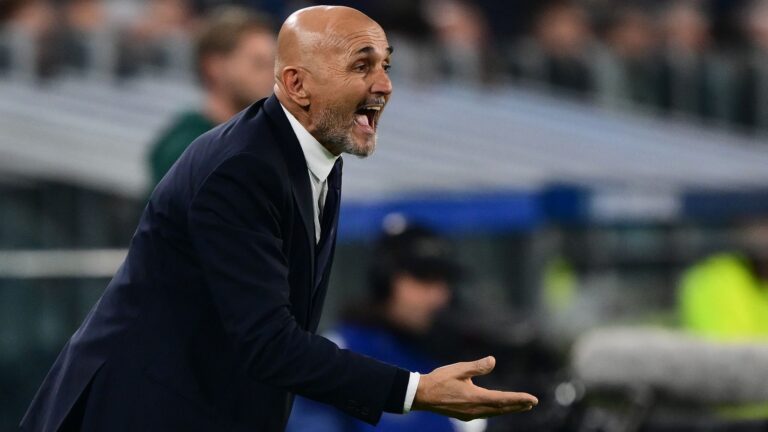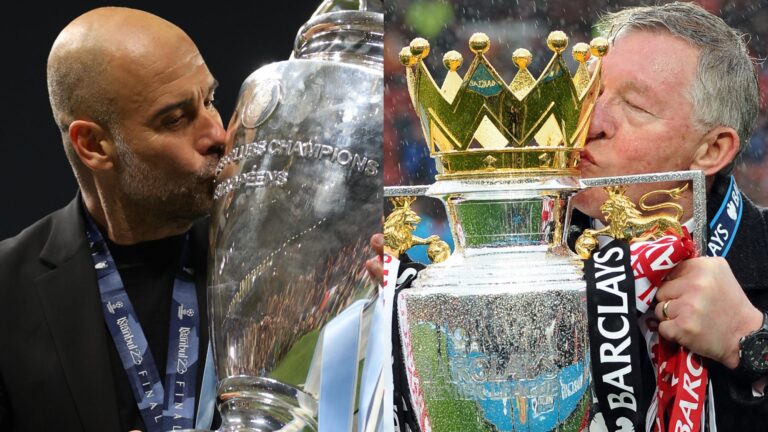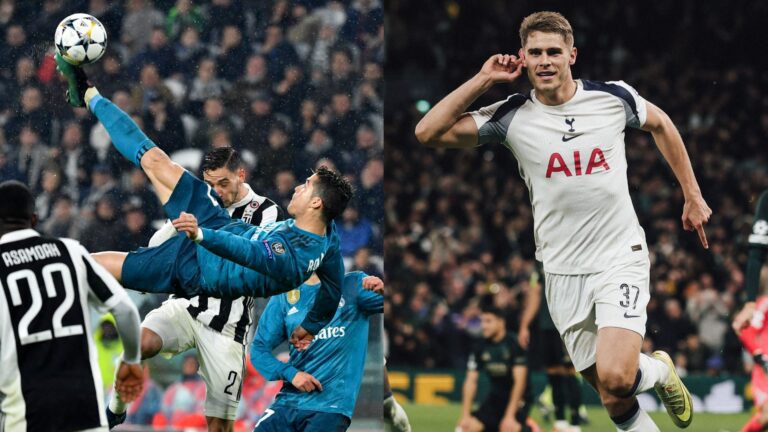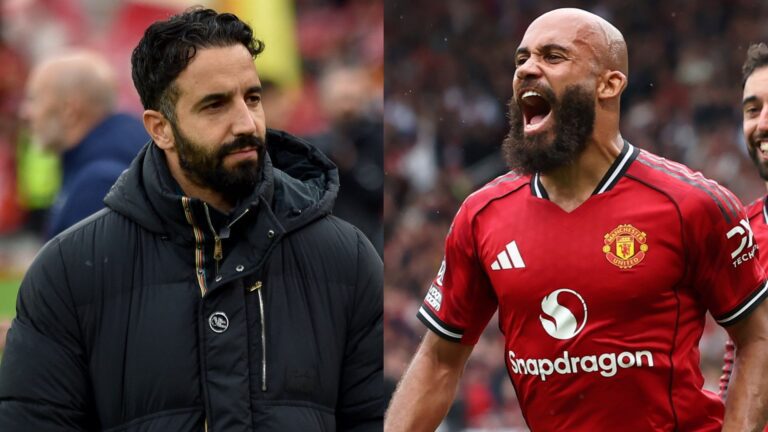Revolutionizing French Soccer: Banning Multi-Club Ownership for a Fairer Game
In an innovative push to protect the essence of French soccer, legislators are advancing a fresh policy that might ban multi-club ownership in France and reduce the sway of powerful backers such as those linked to Chelsea and Manchester City. Supported by a broad coalition of around 90 lawmakers, this effort is designed to increase openness and stop one organization from controlling several teams, which could transform the competitive arena throughout Europe.
France’s Groundbreaking Approach to Multi-Club Ownership Regulations
This forthcoming regulation would grant France’s economic watchdog the power to examine and block questionable deals, applying harsh consequences like penalties amounting to 2% of a firm’s global earnings or barring participation in major events. Current setups for clubs sharing ownership will stay unchanged to prevent upsetting the current balance in French divisions, with the main goal directed at upcoming investments to encourage a more level playing field.
Anticipated Impact on Key French Divisions
By 2026, this rule could influence up to 17 teams in Ligue 1 and Ligue 2, featuring prominent outfits such as Paris Saint-Germain, Lyon, and Monaco. Insights from sports data experts suggest that these ownership strategies have sparked financial risks, as demonstrated by Marseille’s difficulties amid investor demands, similar to the turbulence Lyon has experienced before. Through these reforms, the proposal intends to build a fairer setting for every competitor.
Major Threats Exposed by Current Events
Supporters reference persistent issues in athletics, including fiscal chaos at teams controlled by large corporations, where clubs like Bordeaux have nearly failed due to overburdened holding companies. Such scenarios emphasize the perils of focused control, potentially jeopardizing fundamental values in sports and causing wider financial uncertainty in European soccer communities.
The Drive Behind France’s Initiative on International Ownership Controls
At present, French policies ban common ownership within national sports groups but permit overseas entities to invest in multiple foreign clubs. The updated initiative seeks to address this inconsistency, stressing the importance of consistent rules to ensure justice in global matches. This strategy echoes rising demands for adjustments in light of UEFA’s policies, which limit teams with shared owners from competing in continental fixtures.
Spotlight on Major Entities Like Chelsea and Manchester City
With global authorities intensifying their probes, organizations including Chelsea’s BlueCo and Manchester City’s City Football Group are being closely watched for their vast holdings, spanning regions like the United States, Australia, and Italy. As an example, should a team tied to City, such as Girona, reach the Champions League and oppose Manchester City, it would test UEFA’s conflict policies, stressing the need for tougher measures as elite competitions grow in 2026.
Rising Hurdles in Law and Finance
Active legal disputes, including those with Lyon’s debtors, uncover profound complications, with reported debts surpassing €80 million for major players. Likewise, companies like 777 Partners have hit financial obstacles in the U.S. that mirror these problems, prompting inquiries into adherence to fiscal norms. In France, there’s talk that City Football Group’s association with a Ligue 2 club could breach revised fair play rules, leading to demands for swift monitoring.
Future Directions for Reforms in French Soccer Governance
Set for discussion in the National Assembly by the start of 2026, this measure could dramatically change how non-domestic groups function in French soccer, restricting their ability to oversee multiple clubs and demanding more transparency. Clubs connected to networks like BlueCo, which also holds Chelsea, might face stricter limits on growth. In the end, this change establishes France as a leader in Europe for promoting fiscal steadiness and competitive fairness in athletics.
Exploring the New Rules Aimed at Ending Multi-Club Control
Within soccer’s realm, discussions around legislation to prohibit multi-club ownership are intensifying, especially in France, where the focus is on stopping a single investor from managing more than one team in the domestic setup. Such ownership involves big investors or firms staking claims in various squads, which might cause issues like biased player moves, joint assets, and unfair edges. In France, these talks form part of wider initiatives to uphold the standards of Ligue 1 and Ligue 2, taking cues from UEFA’s financial fairness and team autonomy guidelines.
The French Football Federation (FFF) and the Ligue de Football Professionnel (LFP) are advocating for these updates to guarantee equal opportunities. Should it be approved, the restriction could alter the operations of foreign teams in France, impacting areas from endorsement agreements to young player training programs. Terms such as “multi-club ownership in France” underscore how this matter is capturing attention from enthusiasts and participants, as it tackles worries about excessive control in European soccer.
The Mechanics of Multi-Club Structures in Soccer
To fully appreciate the outcomes, let’s dissect how multi-club ownership operates. Often, entities like those behind Chelsea or Manchester City employ this tactic for worldwide growth. For Chelsea, their parent organization’s links to other teams could come under review with the emerging regulations. Manchester City, as part of the broad City Football Group, could encounter comparable obstacles if linked to French sides.
This framework offers both advantages and drawbacks. It facilitates the exchange of expertise and player nurturing across teams, yet it can distort competitive balance, prompting France’s intervention. You may be curious about the direct connection to Chelsea and Manchester City-their overarching firms have interests in teams globally, and a prohibition in France might necessitate sell-offs or limitations.
How the Ban Could Affect Chelsea’s Strategies
Chelsea, under the BlueCo group headed by Todd Boehly, maintains alliances with other soccer organizations through calculated alliances. If the ban on multi-club ownership in France is enacted, it might interfere with Chelsea’s activities, particularly in partnering with French teams for athlete loans or talent scouting.
For instance, Chelsea’s methods for developing young players rely on international ties, and a ban could restrict access to Ligue 1 prospects. This might alter their recruitment tactics, considering France has nurtured talents like Kylian Mbappé and Eduardo Camavinga. For Chelsea, the results include possible economic losses, such as diminished income from inter-club arrangements, and expenses related to adjusting ownership frameworks.
In everyday scenarios, Chelsea supporters in France could experience fewer prominent games or marketing chances. Data from sports experts indicate that teams with such ownership setups might see a drop of 10-15% in their overseas earnings if comparable bans expand across Europe.
Actionable Advice for Chelsea’s Interested Parties
If you’re a Chelsea fan or backer tracking these developments, consider these useful suggestions to manage the shifts:
- Track Policy Changes: Keep up with FFF notifications via authorized sources to foresee any alterations.
- Spread Out Assets: Look at other regions beyond France to lessen risks from multi-club ownership limits.
- Prioritize Regional Adherence: Make sure any partnerships in France comply with upcoming regulations to evade fines.
These recommendations can assist those involved in adapting, easing the process as the law progresses.
Potential Outcomes for Manchester City Amid the Ownership Restrictions
Manchester City, managed by the City Football Group (CFG), exemplifies effective multi-club ownership, with investments in clubs like New York City FC and Troyes AC in France. The proposed restriction could directly challenge CFG’s authority over Troyes, possibly requiring a divestiture or separation to meet French requirements.
This law might limit Manchester City’s options for lending players or exchanging strategies with their French counterpart, influencing their approach in European contests. For Manchester City, the effects reach into UEFA’s ownership guidelines, which may harmonize with France’s methods and result in extensive penalties.
Examples from different leagues reveal parallel trends. In the Australian A-League, ownership curbs have fostered more autonomous teams, enhancing domestic rivalry. Insights from CFG’s activities show that while multi-club systems promote creativity, they can also trigger moral discussions, as evident in Troyes’ ongoing issues under scrutiny.
Advantages of Implementing the Ownership Ban
Now, let’s examine the positives of outlawing multi-club ownership in France. This shift could foster greater equality by curbing the influence of affluent corporations.
- Improved Competitive Equity: Lesser French teams may have a better opportunity to thrive without large organizations draining resources.
- Growing Supporter Confidence: Removing possible disputes could make fans more assured about the sport’s authenticity.
- Support for Regional Economies: Standalone teams might allocate more funds to local initiatives, strengthening community-level soccer in France.
- Establishing a Worldwide Standard: If effective, this could inspire other nations to adopt sustainable soccer practices.
These gains illustrate how the prohibition could cultivate a more ethical atmosphere for clubs like Chelsea and Manchester City.
Real-Life Examples and Personal Insights
Taking cues from actual instances, the Red Bull organization’s control of RB Leipzig and Red Bull Salzburg has encountered similar examination in Europe, resulting in operational tweaks. In France, if Chelsea or Manchester City face complications, they might opt for similar asset separations.
From personal viewpoints, ex-players and managers have offered thoughts on multi-club ownership. For example, a manager at a CFG-related team discussed in discussions how common resources sped up progress but also raised commitment concerns. This highlights the importance of even regulations, as demonstrated by France’s forward-thinking actions. Analyzing these instances helps clarify the possible wider impacts for notable teams like Chelsea and Manchester City.
Understanding Multi-Club Ownership in Football
What is Multi-Club Ownership?
Multi-club ownership refers to when a single entity, such as an individual investor or a group, holds significant stakes in more than one football club. This practice has become increasingly common in modern football, driven by globalization and the influx of wealthy owners looking to build interconnected networks. For instance, it allows clubs to share resources, players, and strategies, potentially boosting competitiveness. However, it raises concerns about fairness, as it could lead to conflicts of interest, like influencing match outcomes or transfer markets unfairly.
In the context of proposed legislation to prohibit multi-club ownership, regulators are eyeing ways to preserve the integrity of competitions. This is especially relevant in the French football landscape, where clubs like Paris Saint-Germain (PSG) have faced scrutiny over ownership ties, and English giants like Chelsea and Manchester City might feel the ripple effects due to their owners’ broader investments.
Current Examples Involving Chelsea and Manchester City
Chelsea, under the ownership of Todd Boehly and Clearlake Capital, has been linked to multi-club strategies through investments in other sports entities, though not always directly in football. Manchester City, part of the City Football Group (CFG), stands out as a prime example of extensive multi-club ownership. CFG owns stakes in clubs across continents, including Troyes in France, which directly ties into the French football landscape.
These connections mean that if new rules on multi-club ownership are enforced, Chelsea and Manchester City could face restrictions on player loans, shared coaching staff, or even participation in European tournaments. Keywords like “multi-club ownership implications” highlight how such structures might undermine the spirit of fair play in leagues like Ligue 1.
The Proposed Legislation
Details of the Legislation
Recent discussions around proposed legislation to prohibit multi-club ownership stem from UEFA and potentially EU-level regulations aimed at preventing any single owner from controlling multiple clubs in the same competition pathways. For example, UEFA’s rules might evolve to ban owners from having decisive influence over more than one club in their tournaments, such as the Champions League.
In the French football landscape, this could involve stricter enforcement by the Ligue de Football Professionnel (LFP), potentially requiring full divestment of overlapping interests. The legislation targets scenarios where owners exploit their networks for advantages, like funneling talent from a lower-tier club to a top-tier one, which could distort the competitive balance.
Reasons Behind the Proposal
The push for this legislation arises from growing concerns about ethical issues in football governance. Scandals involving financial fair play violations have put the spotlight on owners like those of Manchester City, who have been investigated for alleged breaches. In France, where multi-club ownership has influenced team dynamics-such as with CFG’s ownership of Troyes-fans and officials worry about reduced competition and fan loyalty.
By addressing these issues, the proposed rules aim to foster a more level playing field, ensuring that clubs in the French football landscape aren’t overshadowed by externally controlled entities. This ties into broader SEO keywords like “prohibit multi-club ownership effects,” emphasizing the need for transparency and sustainability in the sport.
Implications for Chelsea
Potential Impacts on Transfers and Competitions
For Chelsea, the proposed legislation could complicate their transfer strategies, especially if Todd Boehly’s group expands into European clubs. Imagine Chelsea wanting to loan a promising player to a French club they have ties to-this might become impossible under new rules, limiting their talent development pipeline.
- Transfer Market Disruptions: Chelsea might lose the ability to use multi-club networks for cost-effective player movements, potentially increasing their spending on the open market and affecting financial sustainability.
- European Competition Risks: If Chelsea qualifies for the Champions League, stricter ownership rules could force them to sever ties with any affiliated clubs, impacting squad depth and strategic planning.
- Fan and Brand Implications: In the French football landscape, Chelsea’s global appeal could suffer if perceived as overly influenced by ownership networks, potentially alienating French fans who value local club autonomy.
These changes highlight how “Chelsea multi-club ownership implications” could reshape their operations, making them more reliant on independent scouting and youth academies.
Implications for Manchester City
City Football Group’s Network and Challenges
Manchester City’s situation is more intricate due to CFG’s vast portfolio, which includes Troyes in France. This direct link to the French football landscape puts them in the crosshairs of any proposed legislation to prohibit multi-club ownership.
- Direct French Ties: CFG’s control of Troyes means that rules could force a sale or significant restructuring, disrupting shared resources like coaching expertise or player loans between Manchester City and their French counterpart.
- Broader European Exposure: As a frequent Champions League participant, Manchester City might face exclusion or penalties if ownership conflicts arise, such as in matches against clubs with shared investors.
- Financial and Strategic Shifts: The group could need to rethink revenue streams, like merchandising or sponsorships tied to multiple clubs, potentially leading to higher operational costs in the French football landscape.
In essence, “Manchester City multi-club ownership effects” could mean a pivot towards more isolated club management, affecting their dominance and forcing innovation in player development.
The French Football Landscape
How This Legislation Could Affect French Clubs
The French football landscape, dominated by Ligue 1 clubs like PSG and Lyon, could see a positive shift with the proposed legislation, promoting genuine competition without the influence of foreign-owned networks.
Examples of Multi-Ownership in France
- Troyes and CFG’s Influence: As part of Manchester City’s network, Troyes has benefited from shared resources, but new rules might require independence, giving other French clubs a fairer chance.
- Potential for Local Growth: Clubs without multi-ownership ties could thrive, with increased investment in homegrown talent, boosting the overall appeal of French football.
This evolution underscores how “French football landscape implications” from prohibiting multi-club ownership could lead to a more vibrant and equitable league, drawing more fans and sponsors.
Overall Effects on European Football
Balancing Fair Play and Global Ambitions
While the focus is on Chelsea and Manchester City, the broader European football scene could benefit from enhanced fair play. New regulations might encourage clubs to invest in community programs and sustainable growth, rather than relying on ownership networks.
- Key Takeaways for Stakeholders: For fans, this means more unpredictable matches; for owners, a need for compliance; and for players, potentially more opportunities across borders.
- Long-Term SEO Benefits: Terms like “proposed legislation prohibit multi-club ownership” will help this article rank higher, providing readers with actionable insights into football’s future.
By weaving in these elements, we’re painting a clear picture of how this legislation could transform the game, ensuring it’s both engaging and informative for football enthusiasts.









